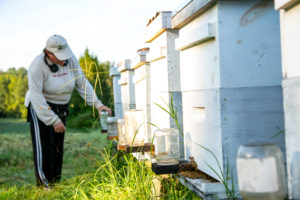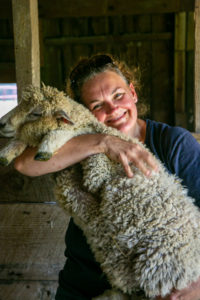2020 NC Farm School Cabarrus County
go.ncsu.edu/readext?639369
en Español / em Português
El inglés es el idioma de control de esta página. En la medida en que haya algún conflicto entre la traducción al inglés y la traducción, el inglés prevalece.
Al hacer clic en el enlace de traducción se activa un servicio de traducción gratuito para convertir la página al español. Al igual que con cualquier traducción por Internet, la conversión no es sensible al contexto y puede que no traduzca el texto en su significado original. NC State Extension no garantiza la exactitud del texto traducido. Por favor, tenga en cuenta que algunas aplicaciones y/o servicios pueden no funcionar como se espera cuando se traducen.
Português
Inglês é o idioma de controle desta página. Na medida que haja algum conflito entre o texto original em Inglês e a tradução, o Inglês prevalece.
Ao clicar no link de tradução, um serviço gratuito de tradução será ativado para converter a página para o Português. Como em qualquer tradução pela internet, a conversão não é sensivel ao contexto e pode não ocorrer a tradução para o significado orginal. O serviço de Extensão da Carolina do Norte (NC State Extension) não garante a exatidão do texto traduzido. Por favor, observe que algumas funções ou serviços podem não funcionar como esperado após a tradução.
English
English is the controlling language of this page. To the extent there is any conflict between the English text and the translation, English controls.
Clicking on the translation link activates a free translation service to convert the page to Spanish. As with any Internet translation, the conversion is not context-sensitive and may not translate the text to its original meaning. NC State Extension does not guarantee the accuracy of the translated text. Please note that some applications and/or services may not function as expected when translated.
Collapse ▲According to the 2017 Agriculture Census, there are about 74,000 ag producers in North Carolina, and 27% of those producers are new and beginning farmers. Only nine percent of North Carolina’s farms sell directly to the consumer. We need new farmers to meet the demand for locally grown food in North Carolina. Quite often I get people who come to my office and say “I have some land that I want to do something with… but I don’t know what. Can you tell me what I can grow and make some money?” This is really an open-ended question because it really depends on the market and the operator on whether an agriculture venture will be successful. Any good business starts out with a good plan and lots of research. The key to having a successful farm enterprise is “knowing” what success means to you. Success may mean keeping the farm out of development, making enough money to take a trip this year, or farming full time and supporting your family. If this sounds like you or someone you know then NC Farm School may be the perfect Christmas Gift. NC Farm School for Southern Piedmont will begin January 14–May 27, 2020. Business classes will meet Tuesdays from 6-9 p.m. at the N.C. Cooperative Extension, Cabarrus County Center and farm field days will be once a month on a Wednesday from 9 a.m.–3 p.m. The cost is $399/person or $599/couple. Applications are available; the deadline is January 10, 2020.
NC Farm School is committed to helping those who have land develop enterprises to keep land in production. Our students find that they can build their dreams into a full farm business plan to enable success when implementing their ideas. Often, this land would have sold to development or not used for agriculture. 2019 Northern Piedmont Farm School graduate Joy Cobb says she was able to take her idea and put it on paper in a meaningful way. “NC Farm School provided me with the tools and support necessary to stop using the spaghetti method to figure out farming. I can do budget sheets that don’t look like the ramblings of a madman on paper.” Joy recognized that this was critical to keeping the commitment to that land that Joy and husband Darryl had made to their family as Joy goes on to say, “His [Darryl’s Father’s] wish was that the land stays in agriculture as opposed to being timbered or turned into a housing development. We made a commitment to Darryl’s Father that we do all we could to keep the farm a farm.”
NC Farm School’s method of helping farmers develop their ideas is hands-on. We emphasize a think-plan-do approach by coming out to the farm to show students hands-on and what the next steps are in practical business development.
Michael Tustin of Squashbuckler Farms said, “The on-farm consultation was awesome because it helped me really tie down some of the finer details of my plans, and it was great to have people with real-world experience tell me I wasn’t crazy and that my dream was possible.”
NC Farm School offers marketing, budgeting, financial risk management, and business plan framework, one on one site visits with university business specialists around your goals, and mentoring based on your area of interest. Extension agents and specialists lead each class and farm field day to give every student a rewarding experience. For more information on NC Farm School, go to the website or call the N.C. Cooperative Extension, Rowan County Center at 704-216-8970.






